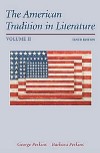Ezra Loomis Pound was one of the most influential poets of the early twentieth century, assisting the development of such writers as T. S. Eliot, Robert Frost, Marianne Moore, W. B. Yeats, Hilda Doolittle (H D), and William Carlos Williams. He was deeply influenced by Japanese and Chinese poetry. He rejected fixed form and metrical patterns in deference to a pristine, concise use of language through which he attempted to project the fluid cadences of music. Erudite in its references to obscure libraries of both ancient and modern texts, Pound's symbolic poetry is some of the most difficult and demanding for generalist readers to compass. Ezra Pound was born in Hailey, Idaho, on October 30, 1885. He completed two years of study at the University of Pennsylvania before graduating from Hamilton College in 1905. He returned to the University of Pennsylvania, entering graduate school in romance languages, and finished a Master's Degree in 1906. He left for Europe only to return a year later for further studies, but by 1920, Pound considered himself a permanent expatriate. During the same period of his academic work, Ezra Pound was already at work on volumes of poetry, seven of which he published in 1912 alone. He volunteered to serve as a foreign correspondent in Europe in support of Harriet Monroe's Poetry: A Magazine of Verse. In the following decade, he became the influential sponsor of many European artists and writers including James Joyce. Eliot acknowledged Pound's rich editorial contributions to The Waste Land (1922). Aside from his enthusiastic assistance to the many writers and imaginative associates he sponsored, Ezra Pound was an enigmatic personality, openly anti-Semitic and vigorously suspicious and opposed to what he saw as the inevitable extravagances of capitalism. During World War II, he broadcast several radio commentaries critical of the United States, acts that brought charges of treason against him and incarceration for a number of years in the Washington, D.C. St. Elizabeth's psychiatric hospital. Only with the promptings of thousands of letters by writers and others was he finally released, and he returned to Italy where he died in 1972. Pound's monumental work, to which he dedicated much of his creative life from 1920 until his death, was his collection of poems, largely satiric in purpose, that he called The Cantos. Originally intended to include 100 poems, the volumes finally amounted to more than 120. Hugh Selwyn Mauberly (1920) is one other poem long considered one of Pound's masterpieces. |



 2003 McGraw-Hill Higher Education
2003 McGraw-Hill Higher Education